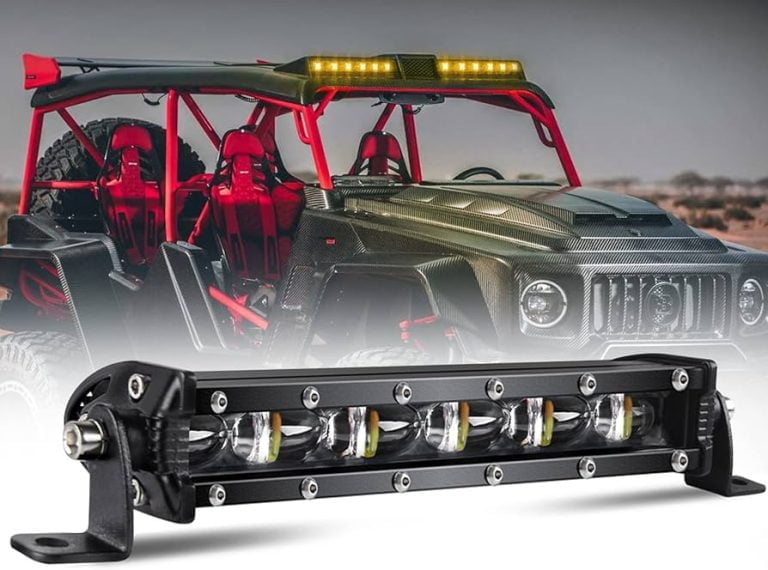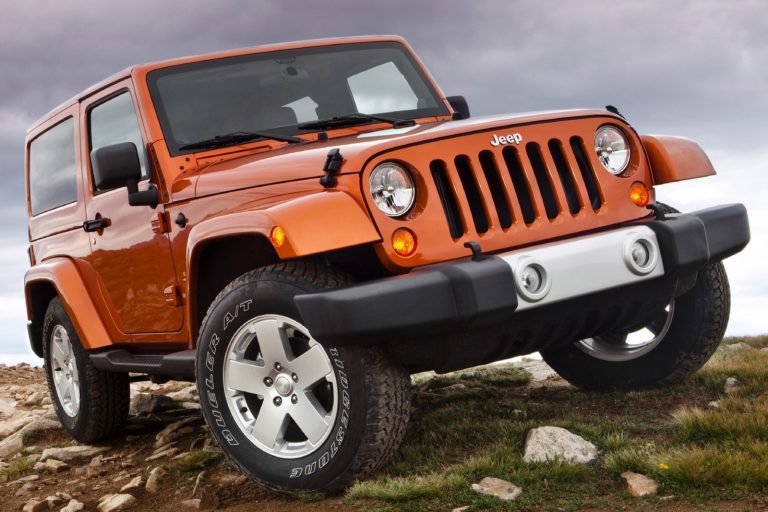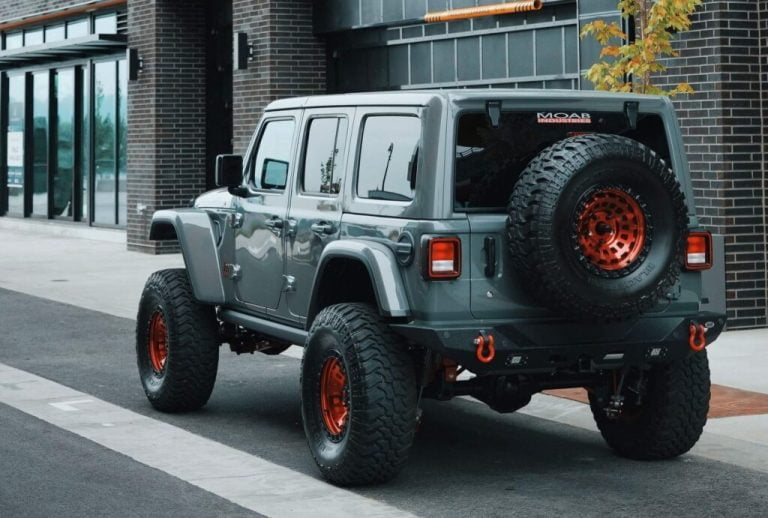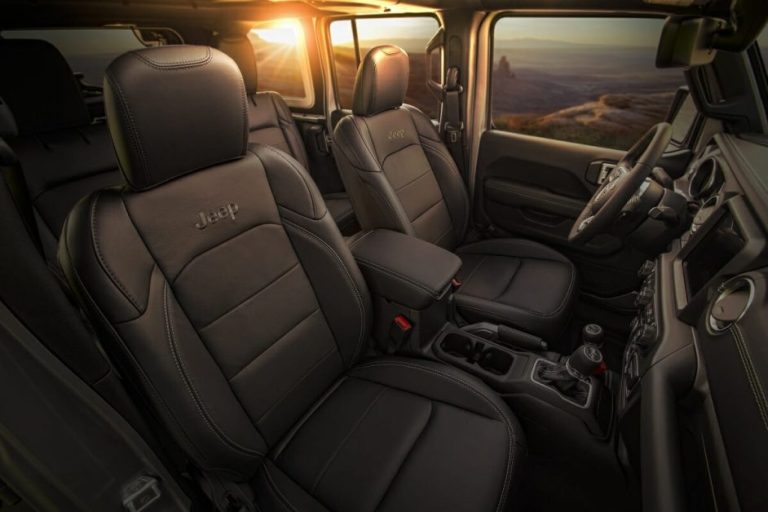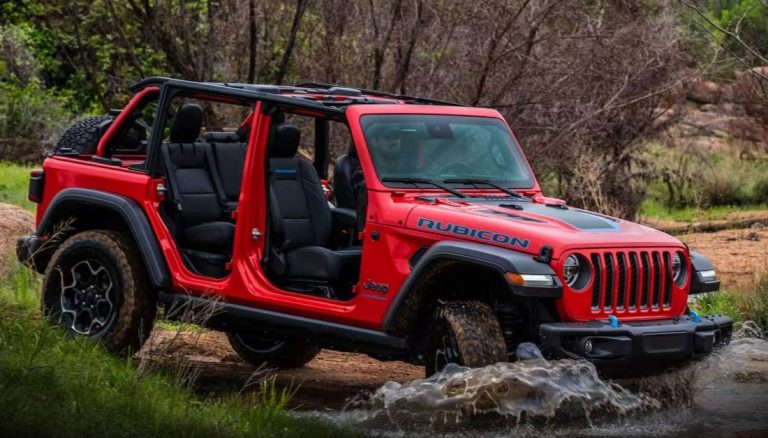Does Jeep Wrangler require premium gas for optimal performance?
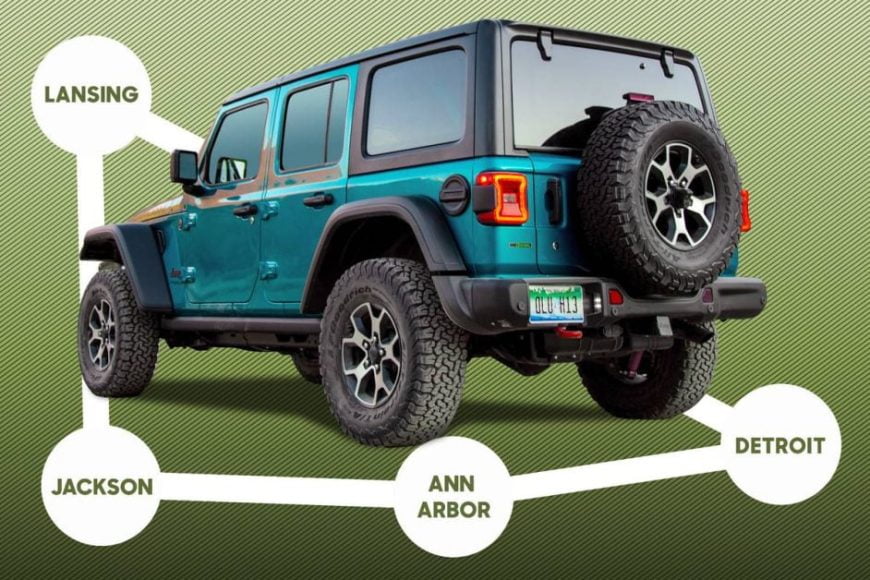
Picture this: cruising along an open road, wind whipping through your hair, and the unbeatable thrill of adventure beckoning.
Now imagine doing all that while being gentle on the environment and saving some extra bucks at the pump.
Sounds too good to be true, right?
Well, brace yourself, because the Jeep Wrangler 4xE is here to turn your dreams into reality.
But hold on a second, before you start planning your next road trip, there’s one tiny detail you need to know: does this powerhouse of a vehicle require premium gas?
The answer might surprise you.
So, buckle up and get ready to uncover the truth behind the fuel that fuels the legend.
Does Jeep Wrangler require premium gas
No, the Jeep Wrangler does not require premium gas.
While premium gasoline may be recommended for the Wrangler 4xE model to optimize its performance and fuel economy, the standard Jeep Wrangler models can run on regular gas without any issues.
The choice of fuel type might affect power delivery and gas consumption, but for most urban and mixed driving conditions, regular gas will suffice.
It’s worth noting that opting for premium fuel may lead to a reduction in fuel consumption, but this needs to be weighed against the higher cost of premium fuel.
Key Points:
- Jeep Wrangler does not require premium gas
- Premium gasoline is recommended for Wrangler 4xE model
- Standard Jeep Wrangler models can run on regular gas without issues
- Fuel type choice may affect power delivery and gas consumption
- Regular gas is sufficient for most urban and mixed driving conditions
- Opting for premium fuel may reduce fuel consumption, but it is more expensive
Check this out:
💡 Did You Know?
1. Despite its rugged and adventurous image, the Jeep Wrangler does not actually require premium gas. It is designed to run perfectly fine on regular unleaded gasoline.
2. The Jeep Wrangler has a rich military history. Its predecessor, the Willys MB, was developed for use by the US Army during World War II, and its design served as a foundation for the Wrangler’s iconic characteristics.
3. The Wrangler is known for being a versatile vehicle, but did you know that it can ford water up to 30 inches deep? This makes it an excellent choice for off-roading in challenging terrains.
4. The Wrangler’s doors are removable, which allows for a unique driving experience. However, what many people don’t know is that the side mirrors also need to be removed when taking off the doors. Thankfully, Jeep has made it easy for owners to install specially designed mirror extensions to maintain road safety.
5. While the Wrangler is known for its open-air design, the original Jeep CJ-8 Scrambler, a variant of the CJ series, featured a rare half-cab option. This configuration sported a small cabin behind the front seats, making it an interesting choice for those looking for a unique Wrangler experience.
Premium Gasoline
When it comes to the Jeep Wrangler, many potential buyers wonder if this iconic off-road vehicle requires premium gasoline for optimal performance. The short answer is no, the Jeep Wrangler does not require premium gas. However, it is important to understand the difference between regular and premium gasoline and how it can impact your driving experience.
Premium gasoline typically has a higher octane rating than regular gasoline. This higher octane rating is designed to prevent knocking or pinging in high-performance engines. In general, vehicles with high-compression engines or turbochargers may benefit from using premium gas. However, most everyday vehicles, including the Jeep Wrangler, are designed to run perfectly fine on regular gasoline.
To summarize:
- The Jeep Wrangler does not require premium gas.
- Premium gasoline has a higher octane rating to prevent knocking or pinging in high-performance engines.
- Most everyday vehicles, including the Jeep Wrangler, run perfectly fine on regular gasoline.
Wrangler 4Xe
The Jeep Wrangler 4xe is a plug-in hybrid version of the traditional Wrangler. It combines a gasoline engine with an electric motor to provide improved fuel efficiency and reduced emissions. Despite its hybrid nature, the Wrangler 4xe does not require premium gasoline.
Like the gasoline-powered Wrangler models, the Wrangler 4xe is designed to run on regular gasoline without any negative effects on performance or fuel economy.
- The Jeep Wrangler 4xe is a plug-in hybrid version of the traditional Wrangler
- It combines a gasoline engine with an electric motor for improved fuel efficiency and reduced emissions
- The Wrangler 4xe does not require premium gasoline
- It runs on regular gasoline without any negative effects on performance or fuel economy.
Performance
While the Jeep Wrangler does not require premium gas, some drivers may wonder if using premium fuel can enhance its performance. The truth is that the Wrangler is designed to run optimally on regular gasoline. The engine, transmission, and other components are specifically calibrated to work with regular gas, delivering the necessary power and torque for off-road adventures.
Using premium gasoline in a Wrangler that is designed for regular gas may not provide any additional benefits in terms of performance. It is always recommended to follow the manufacturer’s guidelines and use the type of fuel recommended in the owner’s manual to ensure optimal performance and reliability.
Fuel Economy
One of the main concerns when using premium gasoline is its potential impact on fuel economy. Premium fuel is typically more expensive than regular gasoline, which can put a dent in your wallet if you’re constantly filling up your Wrangler.
When it comes to fuel economy, using premium gasoline in a Jeep Wrangler that does not require it may not provide any noticeable benefits. The engine and fuel management system are calibrated to work with regular gasoline, and using premium fuel may not result in any significant improvements in terms of fuel efficiency.
- Using premium gasoline in a Jeep Wrangler that does not require it may not provide noticeable benefits.
- The engine and fuel management system are calibrated to work with regular gasoline.
- Premium fuel is typically more expensive than regular gasoline.
Regular Gas
The Jeep Wrangler is designed to run on regular gasoline, which is widely available and less expensive compared to premium fuel. Using regular gas will not negatively impact the performance or longevity of the engine, and you can still enjoy the Wrangler’s power and capabilities without worrying about the potential added costs of premium gasoline.
By using regular gas, you can save money at the pump while still getting the most out of your Wrangler. It’s important to note that using a lower octane rating than recommended by the manufacturer can cause issues such as knocking or decreased fuel efficiency. However, as long as you use the recommended octane level for your specific Wrangler model, regular gasoline will suffice.
- Regular gas is designed to run in the Jeep Wrangler
- Regular gas is widely available and less expensive than premium fuel
- Using regular gas will not negatively affect performance or engine longevity
- Save money at the pump by using regular gas
- Using a lower octane rating than recommended can cause knocking or decreased fuel efficiency.
Power Delivery
The Jeep Wrangler offers robust power delivery for both on and off-road adventures. Its engine is specifically calibrated to deliver the necessary power and torque to tackle challenging terrains. Whether you’re climbing steep inclines or powering through muddy trails, the Wrangler’s powertrain is designed to provide reliable performance.
Using regular gas in a Wrangler will not compromise its power delivery capabilities. The engine’s design and fuel management system are optimized for regular gasoline, ensuring that the Wrangler delivers the power you need, exactly when you need it. Whether you’re cruising down the highway or conquering rugged trails, the Wrangler’s power delivery remains strong and dependable.
- The Jeep Wrangler offers robust power delivery for both on and off-road adventures.
- Its engine is specifically calibrated to deliver the necessary power and torque.
- The Wrangler’s powertrain is designed to provide reliable performance.
- Using regular gas in a Wrangler will not compromise its power delivery capabilities.
- The engine’s design and fuel management system are optimized for regular gasoline.
- The Wrangler delivers the power you need, exactly when you need it.
Gas Consumption
Another factor to consider when deciding between premium and regular gasoline is the impact on gas consumption. Premium fuel typically comes at a higher price per gallon than regular gas, potentially leading to increased fuel costs if you consistently opt for premium fuel in your Jeep Wrangler.
However, it’s important to note that using regular gasoline in a Jeep Wrangler specifically designed for it should not result in excessive gas consumption. The Wrangler’s fuel efficiency is mainly influenced by factors such as its weight, aerodynamics, and driving conditions rather than the type of gasoline used. Therefore, by following recommended driving practices and regularly maintaining your Wrangler, you can optimize fuel efficiency even when using regular gas.
Urban Driving
In urban driving conditions where stop-and-go traffic is common, fuel efficiency becomes an important consideration for many drivers. While the Jeep Wrangler is renowned for its off-road capabilities, it is still a versatile vehicle for daily urban commuting.
When driving your Wrangler in urban areas, you can confidently use regular gasoline without sacrificing performance or fuel efficiency. The engine and powertrain are designed to handle various driving situations, from city streets to off-road trails. While premium gasoline may offer slight benefits for some high-performance vehicles, the Wrangler’s engine is perfectly suited to run on regular gas, making it an economical choice for urban driving.
In conclusion, the Jeep Wrangler does not require premium gas for optimal performance. It is designed to run smoothly and efficiently on regular gasoline, delivering the power, torque, and fuel economy you expect from this iconic off-roader.
- By following the manufacturer’s recommendations and using regular gas, you can enjoy the Wrangler’s capabilities without the added expense of premium fuel.
- Whether you’re exploring rugged terrain or navigating urban streets, the Wrangler remains a reliable companion on your adventures.
FAQ
What gas should you put in a Jeep Wrangler?
When it comes to fueling a Jeep Wrangler, it is recommended to use 87-octane gasoline. This standard octane rating is sufficient for the smooth functioning of the vehicle, unless otherwise specified. By adhering to this recommendation, you can ensure optimal performance without the need for higher octane levels, saving you unnecessary expenses at the pump.
Does Jeep Wrangler take 87 or 91?
The Jeep Wrangler has the flexibility to run on either 87 or 91 octane fuel. According to the vehicle’s manual, 87 octane is acceptable for regular use. However, if one desires enhanced performance and improved fuel efficiency, opting for 91 or higher octane fuel is recommended. This higher-octane option tends to offer better results in terms of both power output and fuel economy, making it a preferred choice for those seeking an extra boost in performance from their Wrangler.
What does a Jeep Wrangler take in gas?
The Jeep Wrangler operates on unleaded regular gasoline with an octane rating of 87, as per the (R+M)/2 method. However, for optimal performance, it is recommended to use 91 or higher octane premium gasoline. This is especially beneficial in hotter weather or when facing heavier load conditions, like towing. By using premium gasoline, the Jeep Wrangler can maximize its engine’s efficiency and deliver an enhanced driving experience in such conditions.
What happens if you put premium in a Jeep?
If premium gasoline with a higher octane rating is used in a Jeep that recommends 87 octane, it would not provide any additional benefits. The high octane fuel is designed for high compression engines to prevent premature ignition and the resulting knocking or pinging. However, since Jeep engines do not have a high compression ratio, using premium fuel would essentially be unnecessary and offer no performance advantages. Ultimately, sticking to the recommended 87 octane gasoline would be the most reasonable and cost-effective choice for Jeep owners.

